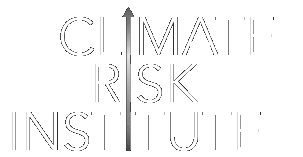Details
Learning Objectives
By the end of this course, you will be able to:
- Identify the Indigenous territories you live in
- Recognize the complexity of Indigenous cultures and historical contexts
- Analyze relevant Truth and Reconciliation Commission Calls to Action
- Reflect on how past learnings inform current and future decisions
- Understand Indigenous perspectives on interconnectivity and climate actions
- Learn from Indigenous climate leaders about impacts in their territories
- Relate traditional and non-traditional climate adaptation methods to your work
- Explore the multi-generational impact of climate decisions
- Describe the importance of integrating Indigenous knowledge and Western science
- Appreciate the need for collaborative, community-based climate initiatives
Specifically, the knowledge, skills and competencies associated with this course include:
Cultural Insights - Recognize the complexity of Indigenous cultures in Canada and the historical context.
Reflective Decision-Making - Reflect on past learnings for future outcomes.
Interconnectivity Understanding - Determine Indigenous views on interconnectivity in Land and Climate actions.
Adaptation Relevance - Relate Indigenous methods of climate adaptation to personal work.
Generational Impact - Explore multi-generational impacts of climate decisions.
Indigenous Leadership - Consider impacts of Indigenous-led climate research and leadership.
Knowledge Integration - Describe the significance of combining Indigenous knowledge and Western science.
Collaborative Engagement - Recognize the importance of collaborating with communities in climate initiatives.
Certification / Credential
Climate Adaptation Fundamentals (CAF) Micro-credential - core requirement course.
The CAF micro-credential is aligned with the Climate Adaptation Competency Framework (CACF v1.0).
Alignment URL: https://can-adapt.ca/sites/weadapt.org/files/aln-competencyframework_2021_1.pdf
In this course, Indigenous Knowledge and Perspectives on Climate Adaptation, the three focused domains are:
- Climate Adaptation Science and Practice Literacy
- Working Together in Climate Adaptation
- nderstanding the Climate Adaptation Challenge.
The four corresponding competencies are:
- Indigenous Knowledge Systems
- Climate Adaptation Science
- Cultural Agility and Safety
- Personal Resilience
Course Outline / Syllabus
The course was designed by a team of Indigenous knowledge holders, subject matter experts, and instructional designers. It aims to provide a self-directed, accessible learning experience that reflects Indigenous values. While no single course can cover all Indigenous perspectives, this course serves as a foundation for further learning and encourages decolonized approaches to climate adaptation and action.
In this course, you will:
- Learn from a diverse range of Indigenous knowledge and cultural practices
- Explore decolonized approaches to climate adaptation and action
- Engage with Indigenous leaders and their perspectives on climate change
Assessment Methods
Assessment from two components: a Participation mark and a Summative Task mark.
Participation mark worth 50% of the final grade was assessed and calculated based on participants’ contributions in discussion forums.
Summative Task mark worth 50% of the final grade based on participants’ development and submission of a response to one of three possible work challenges.
![[object Object] avatar](https://infpuhjaxslesnsctyaj.supabase.co/storage/v1/render/image/public/images/headers/55f6e3d66cb99cfa48b415ed06d6c556f1a963359e90ae23b06bb6bff16e6d7b?width=368&height=368&resize=contain) Indigenous Knowledge and Perspectives of Climate Adaptation
Indigenous Knowledge and Perspectives of Climate Adaptation


